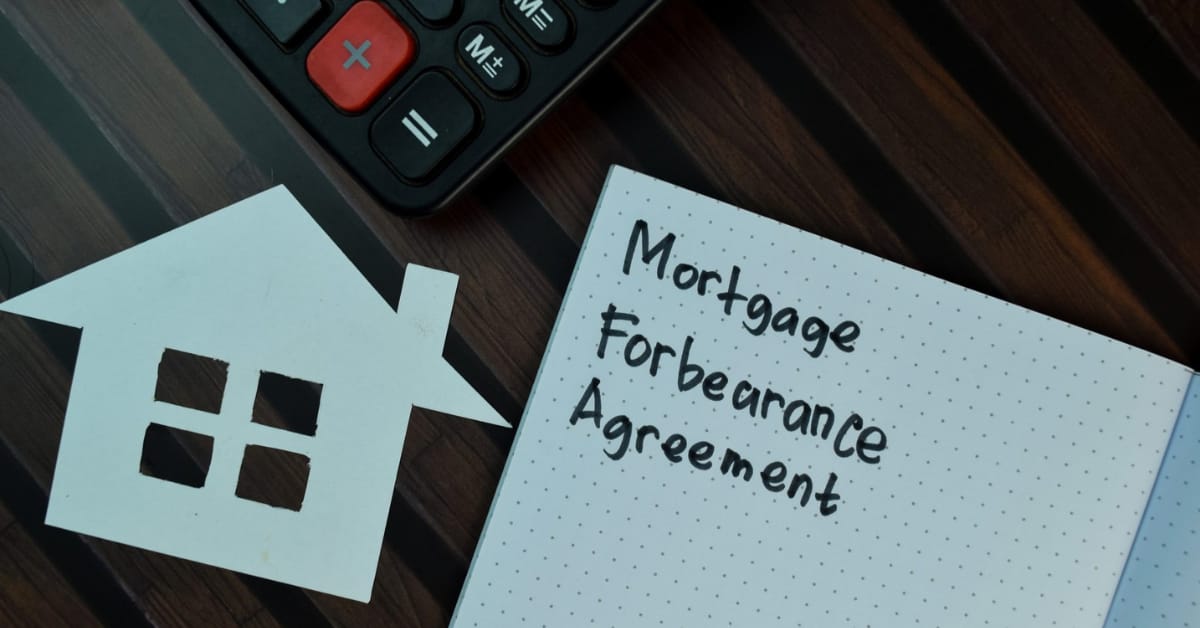While most homeowners will understand that a failure to make a required monthly mortgage payment could result in either foreclosure or a possible default on their home loan, the truth is far from that cut and dried. Unfortunately, there are also times when homeowners need to know what a mortgage forbearance is and how it can affect their chances of avoiding foreclosure. It’s important to be aware of what is going on when it comes to getting financial assistance when you are facing financial hardship. This way you can avoid any nasty surprises along the way. Here is what you need to know.
Mortgage forbearance is something that can occur during a lender’s loan modification program. You may want to request mortgage forbearance from your lenders when your monthly expenses just won’t seem to be dropping. These expenses include loan payments, utilities, and other expenses that occur on a month-to-month basis.
The reason you may want to request mortgage forbearance is that your financial hardships will impact your ability to pay your debts. Your loan servicer is the person or entity that is in charge of determining what is a suitable amount for your situation. He or she will work with you to develop a repayment plan that will be manageable for you. The process will not be fast and easy for you but it needs to be done.
Your loan servicer may lower your payments to something you can afford vs what you are currently paying. This is very important. In some cases, you will be able to save money. However, most people will only save money because they will no longer be forced to deal with their late fees and over-limit penalties. For most people, these lowered payments will enable them to be able to finish making their other monthly payments. This is a temporary hardship.
If you qualify for a mortgage modification through forbearance, you can expect to get temporary relief from your financial problems. It can give you a second chance to handle your finances. However, you cannot rely on this option forever. This reprieve will only last as long as the mortgage loan remains current. You are required to pay back your obligation before your mortgage loan adjusts.
Homeowners that need help with their mortgage loans and have experienced a recent financial hardship are eligible for mortgage forbearance assistance. With it, they will have a chance to regain control over their finances. Although some homeowners choose not to take advantage of this opportunity because of the time-consuming process, others see it as a chance to rebuild and rediscover themselves. What can a Mortgage forbearance do for you? Contact your loss mitigation specialist today to discuss your situation.
If you feel unprepared to handle the process on your own, please contact your real estate agent, we can help speed up the process.
Foreclosure is the official legal way that your bank can take back (assume control of) your house in foreclosure. Once this occurs, you are forced out of your home. A deficiency judgment may be pursued if your real estate is worth less than what you owe on your loan. If you have not made payments on the loan for an extended period of time, your bank can initiate foreclosure proceedings.
If you’re facing foreclosure, then it is important for you to quickly take action to stop it. Not only can a foreclosure completely ruin your credit score, but losing your home is never good and if you’ve gone through a foreclosure, then it can really be tough to find an affordable place to live. Fortunately, there are now some solutions that will help you cope with this serious situation with little to no difficulty. These solutions have been developed by highly trained experts who understand how to effectively deal with the most difficult of situations.

One option that many homeowners overlook is their lender. Although this is the option that everyone wants to try, many lenders are not anxious to foreclose on properties because of the enormous costs involved in taking the home back through foreclosure. Most lenders prefer that the homeowner pay off the balance of the mortgage in full to ensure that they won’t receive any additional interest or fees from taking the property back. In order to do this, the lender will often require borrowers to make large lump sum payments at one time or schedule regular payments. Although it may be the most efficient way to save your home from foreclosure, it is likely to be the last resort offered by your lender.
Another option that homeowners have available to them is a loan modification. A loan modification is much like foreclosure prevention, except that the government allows homeowners who have become behind on their mortgage payments to apply for a loan workout. This is often a much better option than a foreclosure because the loan workout is likely to result in a lower monthly payment that will allow the homeowner to avoid foreclosure and most importantly stay in your home.
Homeowners need to be aware of the average number of months it typically takes to complete the process of foreclosing on a house. The average number is somewhere around 2-5 months, but this does not reflect in all cases. It only reflects the cases that we’re able to be successfully complete. The actual time frame can vary significantly, depending upon how complicated the foreclosure process was. When you are researching your options for foreclosure prevention and deed in lieu, you should try to find out the exact time frame that the lender requires to complete the process.
There are many other options available to a homeowner who is afraid of foreclosure. A loan modification is just one of these options. Another option is to contact your lender and request that he or she consider allowing you to remain in your current home while you work on paying off your current loan. The lender must consider this request to grant your request, but there is no reason why the lender must take forever to consider it. If the lender does allow you to stay in the home while you work on your debt, the monthly amount that you would owe will be substantially reduced, which will make avoiding foreclosure much easier.

The other option available to homeowners is to utilize a plan of action known as a deed in lieu of foreclosure. A deed in lieu allows the homeowner to simply give the property back to the lending company in exchange for the full amount of the mortgage loan. This allows the homeowner to avoid the possibility of multiple foreclosures and significantly reduces the amount of time that they spend paying off their mortgages. While the mortgage payments may remain the same for a few years, the amount of the payments can actually be lowered, which makes avoiding foreclosure a more viable option for many borrowers.
Your lender may initiate foreclosure only if you have not made mortgage payments within a certain amount of time. This varies by lenders and states. If you miss mortgage payments, the court will issue a deficiency judgment, which means that the lender is not required to make any payments to you. You would still be required to pay your creditor the remaining amount of the mortgage loan.
The second legal notice used by the mortgage company to commence foreclosure is called a foreclosure notice of default. It is usually issued by the court. This notice informs the homeowner of their obligation to pay the mortgage. Foreclosures do not stop until all mortgage payments have been made in full or the homeowner is in default of the payment.
There are other ways by which a lender might bring about a foreclosure action. If you file for bankruptcy, the lender might not pursue you. This is because filing for bankruptcy automatically suspends any pending foreclosure actions. Bankruptcy is a very serious matter and one that should not be undertaken lightly. Therefore, it is important to make sure that you know all about bankruptcy before you go ahead with it. Talking to an attorney in advance about your bankruptcy and talking to a real estate agent about foreclosure options is advisable.
There are other ways that the mortgage lender will bring about foreclosure besides just issuing a foreclosure notice. For example, they will often send non-refundable payments to your unpaid accounts. These non-refundable payments can only be made if you miss one or more of the payments. In addition, some lenders will take possession of the property even after you have not made any payments. This is known as repossession and can occur even in cases where you have tried to make the payments on time.
If you want to avoid a foreclosure, it is important to be aware of the different steps that lenders take and the consequences of those steps. Foreclosure is a legal process and there are several steps involved in each legal procedure. It is important that the homeowner is aware of these steps and follows all directions given to them by the lender.







